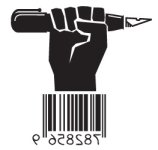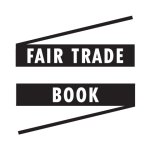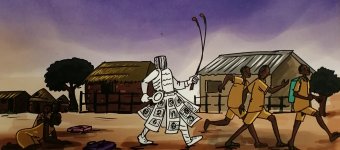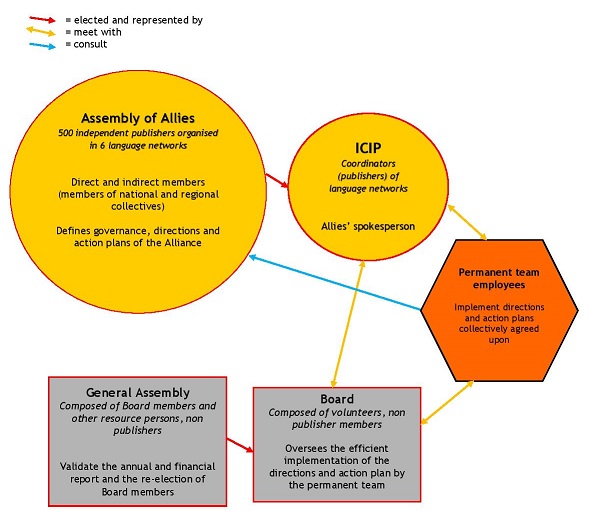
Decades of Israeli occupation and settler colonialism on Palestinian land reached new heights with the recent IDF attacks on Gaza. As per this writing, more than 2,200 Palestinians have died (including 724 children) and more than 1 million Gazans have been ordered to evacuate the north.
In the midst of this grave humanitarian crisis, it is very important to give voice to the opressed through all mediums of expressions, including books and literature. Ironically, the Frankfurt Book Fair —as the biggest annual book fair in the world— has done the opposite. The awarding ceremony for Palestinian author Adania Shibli, whose novel “Minor Details” was to receive 2023 Literaturpreis, was cancelled unilaterally by the Fair, in their decision to “make Jewish and Israeli voices especially visible at the book fair” and to « stand with complete solidarity on the side of Israel ».
This one-sideness is unacceptable, as the Frankfurt Book Fair should be a free and impartial forum to open dialogues and debates without violence. We, publishers from International Alliance of Independent Publishers, condemn the Frankfurt Book Fair’s decision to cancel the award ceremony for Adania Shibli, and demand that Palestinian voices be given the same visibility and respect as other voices at the Fair.
Signatories
This list is not exhaustive (and is updated as and when necessary)
Nouri Abid, Med Ali (Tunisia)
Sandra Abrano, Bandeirola (Brazil)
Tomaz Adour, Vermelho Marinho (Brazil)
Marwan Adwan, Mamdouh Adwan Publishing (Syria-UAE)
Ronny Agustinus, Marjin Kiri (Indonesia)
Cauê Ameni, Autonomia Literária and Jacobin Brazil (Brazil)
Ibrahima Aya, Éditions Tombouctou (Mali)
Clô Barcellos, Libretos (Brazil)
Flávia Bonfim, Movimento Contínuo (Brazil)
Jorge Breogan, Sundermann (Brazil)
Sebastian Budgen, Verso Books (United Kingdom)
Barbara Caretta-Debays, Écosociété (Quebec / Canada)
João Carneiro, Tomo (Brazil)
Chiara Cazzato, Tempesta editore (Italia)
Haroldo Ceravolo, Alameda (Brazil)
Indira Chandrasekhar, Tulika Books (India)
Layla Chaouni, Le Fennec (Morocco)
Reza Chavoshi, Dena books (Netherlands)
Sergio Covelli, EPUBBoo (Italia)
Amanda Crocker, Between the lines (Canada)
Élisabeth Daldoul, elyzad (Tunisia)
Róisín Davis, Haymarket Books (United States)
Héctor Dinsmann, Libros de la Araucaria (Argentina)
Serge Dontchueng Kouam, Presses universitaires d’Afrique (Cameroon)
Éric Dusabimana, Bakame (Rwanda)
Mohamed El-Baaly, Sefsafa Publishing (Egypt)
Fatma El Boudy, Elain Publishing (Egypt)
Yara El-Ghadban, Mémoire d’encrier (Quebec / Canada)
Luiz Fernando Emediato, Geração (Brazil)
Whaner Endo, W4 Editora (Brazil)
Letícia Esteban, Gato Sueco (Spain)
Zygmunt Antoni Filipecki Jr., Mauad (Brazil)
Corinne Fleury, Atelier des nomades (Mauritius / France)
Pedro Fonseca, Âyiné (Brazil)
Fernando Diego Garcia, Libros del Zorro Rojo (Spain)
Germán Gacio Baquiola, Editores independientes de Ecuador (Ecuador)
Pauline Gagnon, Écosociété (Quebec / Canada)
Müge Gursoy Sökmen, Metis Publishers (Turkey)
Daniela Gutfreund, Lugar de ler (Brazil)
Samar Haddad, Atlas Publishing (Syria)
Susan Hawthorne, Spinifex Press (Australia)
Selma Hellal / Sofiane Hadjajd, Editions Barzakh (Algeria)
Colleen Higgs, Modjaji Books (South Africa)
Ivana Jinkings, Boitempo (Brazil)
Hassan Khalil, Al Farabi (Lebanon)
Renate Klein, Spinifex Press (Australia)
Elisa Labanca, Buckfast Edizioni (Italia)
Alessandro Labonia, CSA (Italia)
Daniel Louzada, Da Vinci (Brazil)
Adriana Maciel, Numa (Brazil)
Stella Magliani-Belkacem, La Fabrique (France)
Lizandra Magon, Jandaíra (Brazil)
Alexandre Martins Fontes, WMF Martins Fontes (Brazil)
Maria Beatriz Medina, Banco del livro (Venezuela)
Daniela Mena, GAM (Italia)
Ione Meloni Nassar, Mercuryo Jovem (Brazil)
Raquel Menezes, Oficina Raquel (Brazil)
Ritu Menon, Women Unlimited (India)
Lilah Mercader, Éditions Dent-de-lion (Canada)
Anita Molino, Il leone verde (Italia)
Rosana MontÁlverne, Aletria (Brazil)
Nabil Mroueh, Al Intishar Al Arabi (Lebanon)
Francisca Muñoz Méndez, Editoriales de Chile (Chile)
David Murray, Écosociété (Quebec / Canada)
Renata Nakano, Quindim (Brazil)
Maira Nassif, Relicário (Brazil)
Denise Natale, Papagaio (Brazil)
Carla Oliveira, Orfeu Negro (Portugal)
Maria Osório, Babel (Colombia)
Safaa Ouali, Le Fennec (Morocco)
Marco Paganini, AltreVoci (Italia)
Mary Lou Paris, Terceiro Nome (Brazil)
Simone Paulino, Nós and Nossa (Brazil, France)
Dieulermesson PetitFrère, LEGS Édition (Haiti)
Mirline Pierre, LEGS Édition (Haiti)
Dolores Prades, Instituto Emília (Brazil)
Naiara Raggiotti, Carochinha (Brazil)
Marie Michèle Razafinstlama, Jeunes malgaches (Madagascar)
Anahita Redisiu, Forough Verlag (Germany)
Rodney Saint-Éloi, Mémoire d’encrier (Quebec / Canada)
Kenza Sefrioui, En toutes lettres (Morocco)
Alfonso Serrano, La Oveja Roja (Spain)
Abdulai Sila, Ku Si Mon Editora (Guinea Bissau)
Paulo Slachevsky, LOM ediciones (Chile)
Aliou Sow, Éditions Ganndal (Guinea)
Simón Vásquez, Verso Libros (Spain)
Catia Ventura, Ventura Edizioni (Italia)
Marisol Vera, Editorial Cuarto Propio (Chile)
Miguel Villafuerte, Editorial Blanca (Ecuador)
Cristina Warth, Pallas Editora (Brazil)
Mariana Warth, Pallas Editora (Brazil)
Riccardo Zanello, Tempesta editore (Italia)
Habib Zoghbi, La Maison du livre (Tunisia)
Rosa Maria Zuccherato, Nova Alexandria (Brazil)

































